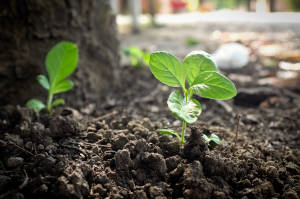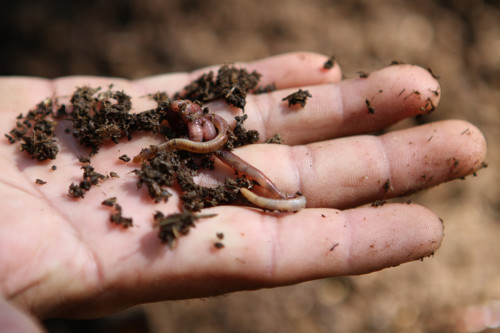Here’s Why Your Kid Should Play In The Dirt
Allergies, gut disorders, and autoimmune issues among children have risen in the last two decades largely because hand sanitizers and the modern ethics of cleanliness dictate that playing in the dirt is “bad” for a child’s health. According to a 2012 study published in The Journal of Allergy and Clinical Immunology, however, Amish children who grew up on farms in northern Indiana have a significantly lower rate of allergies than non-farm populations (5.2% for Indiana Amish populations, 11.3% for non-farm Swiss populations), which largely has to do with the former population’s relationship with dirt.
This disparity, which is called “the farm-effect”, has been documented in agrarian populations across North America and Europe for years, with a 50% reduction in allergic occurrence in children raised in rural environments where access to dirt is not only welcome, but encouraged.
The notion that “dirt don’t hurt” is not new, but the science to support this argument is. Research suggests that avoidance of dirt in children prevents proper formation of the healthy gut bacteria that plays a role in boosting immune function. Playing in the dirt, despite its connotation of uncleanliness, is actually very good for a child’s health.
“Playing in the dirt, despite its connotation of uncleanliness, is actually very good for a child’s health.”
In an article for the New York Times titled “Babies Know: A Little Dirt Is Good For You”, Jane E. Brody writes:
“In studies of what is called the hygiene hypothesis, researchers are concluding that organisms like the millions of bacteria, viruses and especially worms that enter the body along with “dirt” spur the development of a healthy immune system. Several continuing studies suggest that worms may help to redirect an immune system that has gone awry and resulted in autoimmune disorders, allergies and asthma.
These studies, along with epidemiological observations, seem to explain why immune system disorders like multiple sclerosis, Type 1 diabetes, inflammatory bowel disease, asthma and allergies have risen significantly in the United States and other developed countries.”
Fermented foods and probiotic supplements are good vehicles for exposure to similarly beneficial bacteria, but some of these strains don’t survive through digestion like the gut flora-boosting bacteria found in soil.
Kids who grow up on farms or with a dog in the house have fewer allergies than those who don’t, and this is especially important for children six months and older– because soil is rich in iron, zinc, magnesium, and other essential minerals that picky eaters often lack.
“Of all the paths you take in life, make sure a few of them are dirt.” — John Muir
Wellness Mama suggests that simply allowing babies to come in contact with dirt is a sufficient solution for this problem, while new companies like Garden of Life have put out specially-formulated raw probiotics for kids, which are angled at restoring the beneficial bacteria that may be lost when parents discourage exposure to dirt and other germs.
Playing barefoot on non-contaminated earth is good, as is allowing kids to simply get dirty outside or in the garden. The trace amount of bacteria that will be transferred into their digestive system vis-à-vis having dirty hands or touching their face is important, if not essential, for probiotic uptake.
Probiotic-rich foods and supplements are a great addition to an outdoor-friendly lifestyle, as well, but supplements miss out on an important biological factor: they don’t contain any Soil-Based Organisms, which are referred to as SBOs. SBOs have stronger strains of beneficial bacteria that can survive through the digestive system and provide the most benefit to overall health.
According to Wellness Mama:
“One leading researcher, Dr. Joel V. Weinstock, the director of gastroenterology and hepatology at Tufts Medical Center in Boston, said in an interview that the immune system at birth ‘is like an unprogrammed computer. It needs instruction.’
He said that public health measures like cleaning up contaminated water and food have saved the lives of countless children, but they ‘also eliminated exposure to many organisms that are probably good for us.’
‘Children raised in an ultra clean environment,’ he added, ‘are not being exposed to organisms that help them develop appropriate immune regulatory circuits.’”
There’s also the little complication of our modern obsession with soap, shampoo, and other astringent body-cleansing products, which can often compete with naturally-occurring bacteria on the skin– bacteria that are also working to help hydrate, calm, and balance the skin’s pH. Everyone’s microbiome is different, but some research suggests that good bacteria might be the key to a healthy epidermis. MotherDirt’s AO+ mist is one such live probiotic formulation that aims to cleanse the skin without removing good bacteria, in order to restore the skin’s natural microbiome. Microbes are a healthy complexion’s best friend, and AO+ mist contains live ammonia-oxidizing bacteria that is said to be lost with modern hygiene (it does for the skin what probiotics are said to do for the gut). The mist, which comes with a shampoo and cleanser that have been formulated so as to NOT strip the skin of beneficial bacteria, is best applied twice daily– especially after a shower.
Other innovators suggest that a good way to get beneficial bacteria back into and onto our bodies is by spraying probiotics throughout the home– the so-called “environmental approach”. Homebiotic, a new probiotic “cleaning” solution– ‘cleaning’ in the sense that it restores competitive bacteria that helps ward off mold, must, and other household pathogens– came to market earlier this year with the goal of doing just that. The “environmental probiotic for the home” works to restore beneficial bacteria in a living space just as a digestive probiotic helps to restore the beneficial bacteria in one’s gut. If most beneficial bacteria in the home are wiped out by harsh antiseptic cleaning products, Homebiotic works to restore them so that you don’t have to bring actual dirt into your space.
Still, for a quick dose of beneficial microbes, nothing beats getting one’s hands dirty. Send your kids into the garden, the woods, or a local park with the knowledge that any dirt they encounter is working to bolster and improve their health. Limit access to hand sanitizers, and let human interaction with nature run its course. Our surrounding environment is a sophisticated organism that continues to heal us even as we harm it. Despite our attempts to deny her import, Mother Nature is on our side.




































